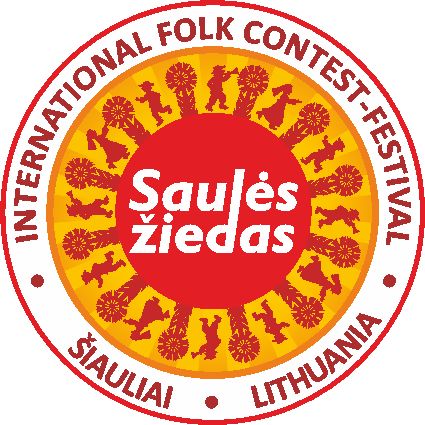LABINGIS is a Prussian word meaning “successful, bringing good fortune, well-being, goodness” — a word that has naturally integrated into the Lithuanian language. The word “labas” (meaning “hello”) is heard daily on everyone’s lips — as both a greeting and a wish for good fortune.
The ensemble was founded in the autumn of 2013 out of a great desire to sing and be together. Fate brought together cheerful and active people from different professions who share an interest in folklore: singers, dancers, musicians playing various instruments, and storytellers using their native dialects. The ensemble includes representatives from all of Lithuania’s ethnographic regions. Labingis members wear their own national costumes with pride during performances.
The ensemble’s goal is to preserve the cultural heritage of the Lithuanian nation and to continue the ancient traditions of singing, music-making, dancing, and storytelling.
Labingis participates annually in international folk festivals such as Skamba skamba kankliai, Baltica, Lauksnos, and the World Lithuanian Song Festivals. The group also actively takes part in various calendar and public celebrations, including:
Jurginės in Palanga (Jurgi, paimk raktus), the Dzūkija Folklore Festival Čiulba ulba, Saulelė rauduona in Plungė, Tek saulužė ant maračių in Nida, the Sutartinės Festival Sutarjėla, Pokrovo varpai, Ten, kur Nemunas vingiuoja, Visa Lietuva šoka, and many others.
The ensemble also participates in Užgavėnės, Atvelykis, Joninės (Midsummer) celebrations, All Souls’ Day, Advent, Christmas folklore gatherings, various commemorations, educational programs, exhibition openings, and fairs.
In 2023, the group participated in the 3rd Lithuanian Folk Performers Festival-Competition “Sosėtėkem Plungie 2023”, earning prizes in the singers and storytellers categories.
Each year, the ensemble organizes three-day creative camps. The group has performed abroad in Germany (2015), Greece (2017), Finland (2019), Latvia (2022), and Italy (2025).
The ensemble has built a truly rich repertoire — songs, dances, instrumental pieces, and ancient Catholic hymns from all Lithuanian ethnographic regions. A particularly important part of rehearsals and concerts is the ancient polyphonic sutartinės: vocal (both sung and danced), instrumental (performed with skudučiai, lumzdeliai, or kanklės).
In the past five years, several concert programs have been prepared:
2021 – “Ne gegułė kukavo” – a program of Dzūkija songs;
2021 – “Či važiuoja svočiute” – a program of sutartinės;
2021 – “Lydžiu laide” – a program dedicated to All Souls’ Day;
2022 – “O pas mus mieste” – songs about Vilnius;
2022 – “Snaudala snaudžia” – a program for Advent;
2023 – “Labingas vakaras” – a program dedicated to the ensemble’s 10th anniversary;
2024 – “Sodo gyvata” – a mythological program dedicated to the inclusion of Lithuanian straw gardens into UNESCO’s heritage list;
2025 – “Dangiškoji šeimyna” – a mythological program marking the 200th anniversary of the publication of the first Lithuanian folk song collection “Dainos oder Littauische Volkslieder” by Liudvikas Rėza.
Each member of Labingis is like a unique instrument whose voice adds to and enriches the ensemble’s overall sound. The ancient Lithuanian song is not mere entertainment; each song breathes the spirit of the ancestors. For this reason, the ensemble seeks to shape its identity with a distinctive style and manner of song interpretation.
The group continues to grow, mature, and set new goals every year. In 2018, they released a CD titled “Labingas kuparas” Since 2018, the ensemble has been awarded Category I status.
Artistic Director: Milda Ričkutė



